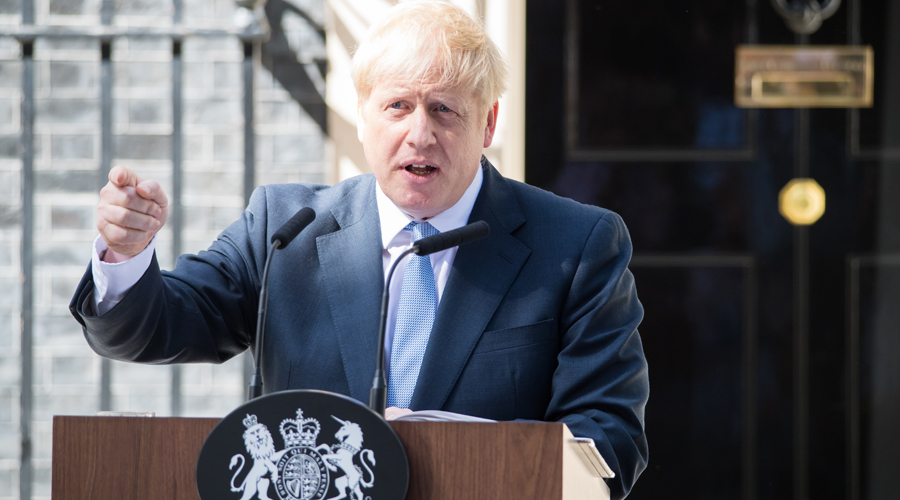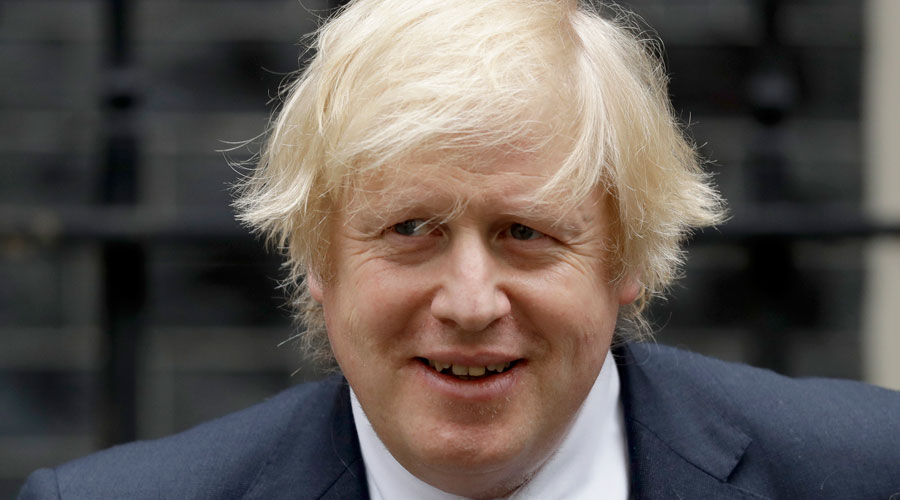British Prime Minister Boris Johnson has used the word “emergency” to describe a looming omicron crisis.
“A tidal wave of omicron” infections is approaching the UK, Boris told the nation from 10 Downing Street on Sunday night.
He said he was calling in the military to help deliver 1 million jabs a day so that the country’s entire 18-plus population could get boosters by December end.
He said two doses of vaccine were no longer “enough to give the level of protection we all need”. The government is therefore launching an expansion of the booster rollout, dubbed “the omicron emergency boost”.
“Everyone eligible aged 18 and over in England will have the chance to get their booster before the new year,” Boris said, adding that the National Health Service booking system would open to the remaining younger people from Wednesday.
The Prime Minister conceded that “some other appointments” within the health service would “need to be postponed until the new year” to allow the NHS to meet the new, more ambitious target. Vaccinations will be given even on Christmas Day.
“If we don’t do this now, the wave of omicron could be so big that cancellations and disruptions, like the loss of cancer appointments, would be even greater next year,” Boris said.
In a joint statement, the chief medical officers of England, Northern Ireland, Wales and Scotland warned that the omicron variant posed a risk to health services.
“Early evidence shows that omicron is spreading much faster than delta and that vaccine protection against symptomatic disease from omicron is reduced,” they said.
“Data on severity will become clearer over the coming weeks, but hospitalisations from omicron are already occurring — and these are likely to increase rapidly.”
On Monday, the NHS booking system for jabs broke down under the pressure of demand. Long queues formed at clinics.
So far, 10 patients with omicron have been admitted to hospital in England.
Health secretary Sajid Javid said: “We’re seeing phenomenal growth, we’re seeing a huge number of infections.”
Javid underlined that even if omicron turned out to be milder than the delta variant, it would still lead to a high number of hospitalisations because case numbers are expected to be exceptionally high.
He pledged that checks for cancer would be unaffected but “it does mean, when it comes to primary care for the next few weeks, our GPs will only be focusing on urgent needs and vaccinations and it also means non-urgent appointments and elective surgeries may have to be postponed into the new year”.
He said it was better to act now rather than wait for hospital admissions and deaths to rise.
The problem for Boris is that an extreme wing of the Conservative Party is determined to vote against restrictions – whatever the cost in lives – to keep the economy open. His personal authority has been undermined by allegations he took no action to prevent Christmas parties being held in Downing Street last year when the country was under a strict lockdown.
The suggestion that Boris had “misled” Parliament has led to backbench Tory murmurings that he ought to step down as Prime Minister.
A leader comment in the Financial Times censured Boris: “As Prime Minister, Johnson has played fast and loose with constitutional conventions, censured by the Supreme Court over his attempt to prorogue Parliament for five weeks during the Brexit crisis. He has used threats to breach international law as a negotiating tool with the EU, denting faith in his word, and that of the UK, overseas.
“A big risk now is that distrust in Johnson will hamper the adoption of restrictions that are vital to combat the highly infectious omicron variant. The Prime Minister faces a rebellion leaving him needing Labour support to pass ‘Plan B’ measures for England, and a potentially bigger mutiny against further steps. Johnson is fighting for his political future with Tory MPs among whom the most vocal and aggressive are Covid-sceptics.
“A leadership challenge in the midst of a virus surge might be worse for the public interest. Candidates would end up competing over who was more laissez-faire on antivirus measures, and a contest would mean a weeks-long hiatus while party members voted.”
With a parliamentary by-election pending, the FT emphasised: “A poor result in this week’s North Shropshire by-election could put more pressure on Johnson.”











